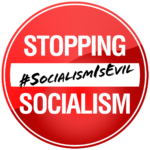The threat of artificial intelligence stoking greater inequality and sparking a financial crash provided a stark background to discussions as business leaders, regulators and policymakers gathered in Davos.
Twin warnings about the potential threats of AI from the International Monetary Fund and the powerful Basel banking committee helped to set a cautious tone as 2,800 delegates arrived at the Swiss resort.
The IMF predicted that about 60 per cent of jobs in advanced economies such as Britain would be affected by machine learning, with negative impacts for about half of them. The losers could be faced with lower salaries, reduced hiring and some jobs disappearing altogether, it said in a report timed to coincide with the World Economic Forum meeting.
While business leaders largely have seized on the positives of how AI could boost productivity and how it could give those that embrace the technology a competitive edge, the IMF pointed to more troubling outcomes as well.
Kristalina Georgieva, its managing director, said: “We are on the brink of a technological revolution that could jump-start productivity, boost global growth and raise incomes around the world. Yet it could also replace jobs and deepen inequality. In most scenarios, AI will likely worsen overall inequality, a troubling trend that policymakers must proactively address to prevent the technology from further stoking social tensions.”
Pablo Hernández de Cos, chairman of the Basel Committee on Banking Supervision, also raised the danger of AI becoming a force for harm, suggesting that it could lead to problems such as financial instability.
AI could lead to “issues that, if not properly managed, could change the course of history not necessarily for the good”, he told the Financial Times before the meeting. Central banks and financial regulators needed to come up with a co-ordinated response to the threat, said De Cos, who heads the Bank of Spain.
See full article from The Times.
Stopping Socialism is a project of The Heartland Institute and The Henry Dearborn Center for Human Rights, a nonprofit association of professionals and scholars.






